Disclosure: Meeple Mountain received a free copy of this product in exchange for an honest, unbiased review. This review is not intended to be an endorsement.
Sharp (adj.) ‘shärp
- (of an object) with an edge or point able to cut another object.
- (of a sound) loud, sudden, and piercing.
- (of a board game) highly tactical, presenting myriad options with only a few that will not lead to ruin.
How sharp do you like your games? If board games were wit, how would you rate your preference on a scale from garden slug to Winston Churchill? If board games were knives, where would you fall on the spectrum between a butterfly trainer, its dull blade used to practice throwing tricks, and a freshly-sharpened chef’s knife fashioned from Aikido steel? If board games were cheese, would you like them aged a mild three-to-six months, or would you rather they had two or three years’ experience before you take a bite? For those who lean towards the sharper end, let me introduce you to Mindbug, quite possibly the sharpest game I have ever played.
Mindbug is a two-player card game with some serious design pedigree: alongside first-time designers Christian Kudahl and Marvin Hegen are Richard Garfield, the creator of Magic: The Gathering, and Skaff Elias, one of Garfield’s co-conspirators since the early days of Wizards of the Coast. The rules are about as simple as it gets: each player is dealt a personal deck of ten cards, each featuring a single creature and a fantastic illustration from artist Denis Martynets. On your turn, you either play a creature card from your hand of five — there’s no cost associated with this, there are no resources to manage, you just pick a card and put it down on the table — or attack with one of the creatures you already have in play. The defending player can decide to block with one of their own creatures, possibly losing it in the process, or take the hit and lose a life point.
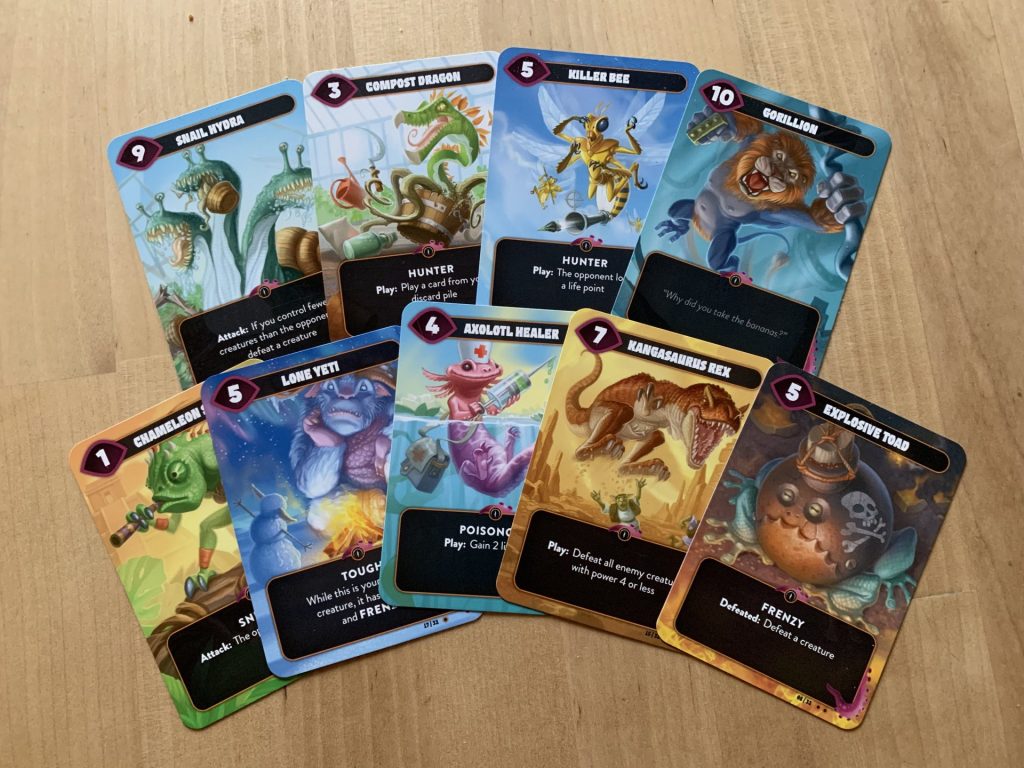
Every decision you make in Mindbug is influenced by the creature abilities, which vary so widely in their effects that it’s hard to know where to begin describing them. These are where Garfield’s influence is most clearly felt, since many will be familiar to players of Magic: take a card from your or your opponent’s discard pile, reduce your opponent’s life points, gain life points, defeat a creature, etc. This may sound an awful lot like a game where the player with the better cards will almost always win, but that’s where the Mindbugs come in. Those one-time use parasitic aliens, two per player, can take control of an opponent’s creature the moment it’s played. This happens before any abilities come into effect, and is the key to Mindbug’s considerable tactical depth: every card you play could end up in the hands of your opponent.
I was unimpressed by my first couple of plays. In fact, I hated how consequential every decision felt. The cards are all so overpowered — one of the designers said as much to me when I spoke to him during my trip to Spiel 21 — that everything feels like a trap. Every card, when played at the right time and used in the right way, has the ability to completely change the direction of momentum, and at first that’s overwhelming. With repeated plays, though, a fascinating decision space unfolds before you, familiarity revealing new ways to try to wriggle out of tight spots. Everything is surmountable, even if it’s unpleasant.
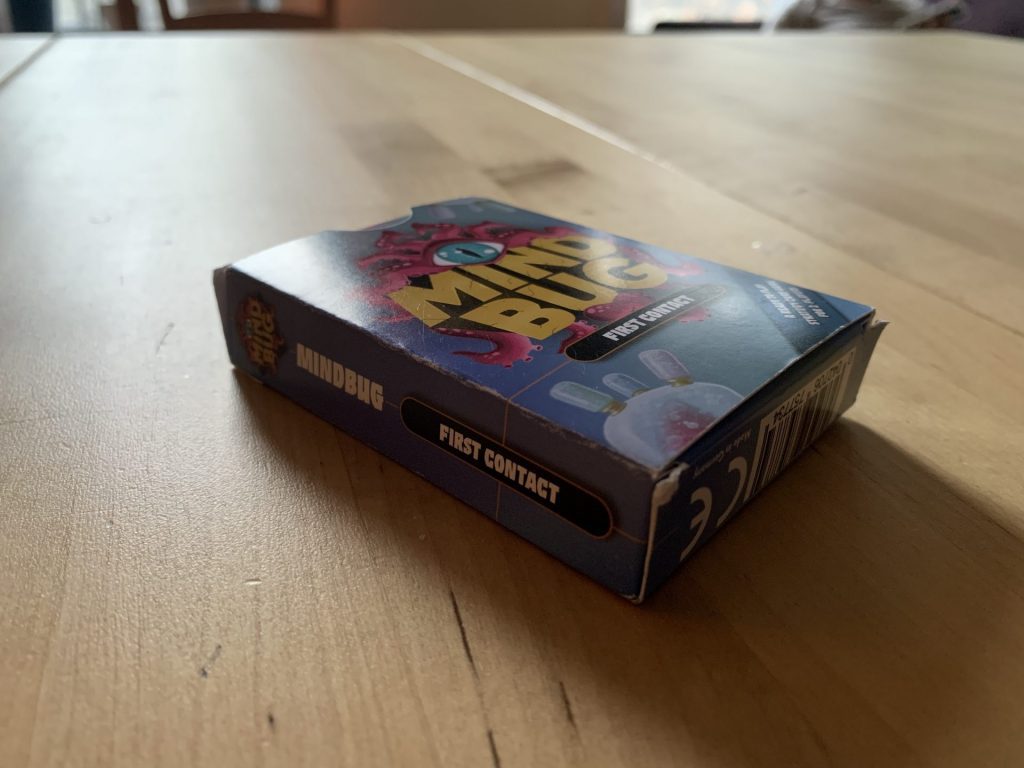
Mindbug is a luxury sports car, fine-tuned and unbelievably responsive. Unlike Magic or many other collectable card games, there isn’t any potential for down time, no turns wasted while waiting for cards to come up that give you something to do. There’s always a decision to be made, even if it’s choosing between the frying pan and the fire. This is a game where two well-matched opponents can both somehow feel on their back foot, and the best part every time I’ve played has been the post-op discussion about all of the things you and your opponent could have done differently at different moments. Nearly every game I’ve played produced the opposite victory outcome if we went back only one or two turns. It’s that sensitive a machine, an absolutely wild experience once you learn to see it.
While I have nothing but glowing praise for Mindbug, I find myself weirdly cold to the experience of it. This could be a thematic issue, since there’s no real story to be found. On paper, a highly-interactive two-player game loaded up with tactical decisions should be exactly my bag. The issue could be that there’s nothing but tactics, since the game doesn’t include much in the way of the longer-term decisions that constitute strategy. I’m really not sure. Even if Mindbug isn’t a game that I love, it’s a design that I admire. It’s Magic on steroids and unambiguously fantastic at being what it wants to be. If you’re the kind of person who likes games that are sharper than Oscar Wilde using a Ginsu knife on an old chunk of Asiago, you’d be hard-pressed to do better than Mindbug.


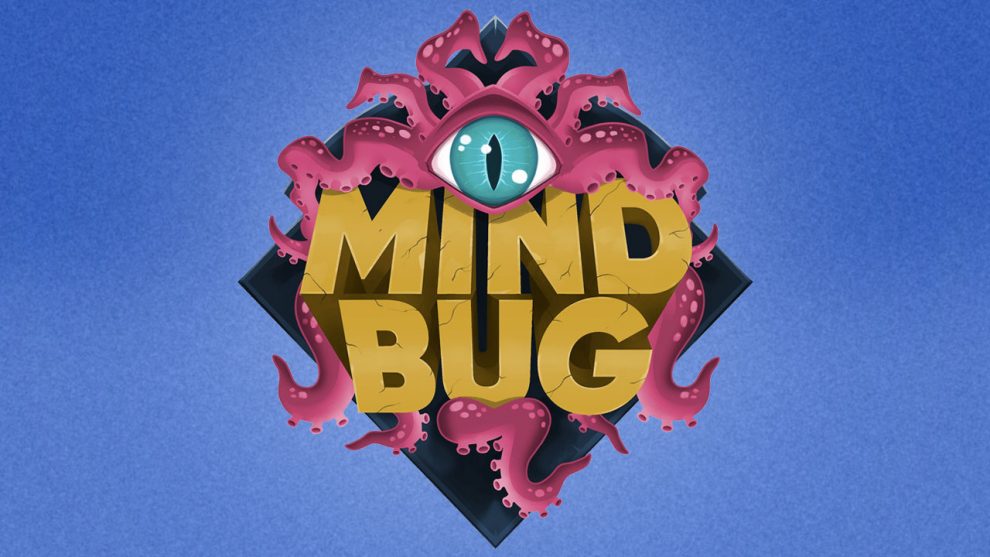

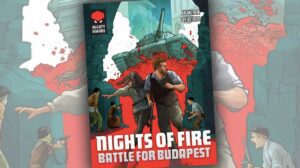
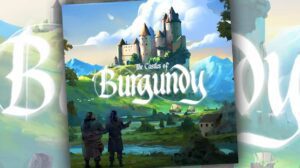
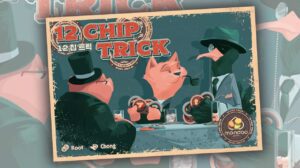




Add Comment